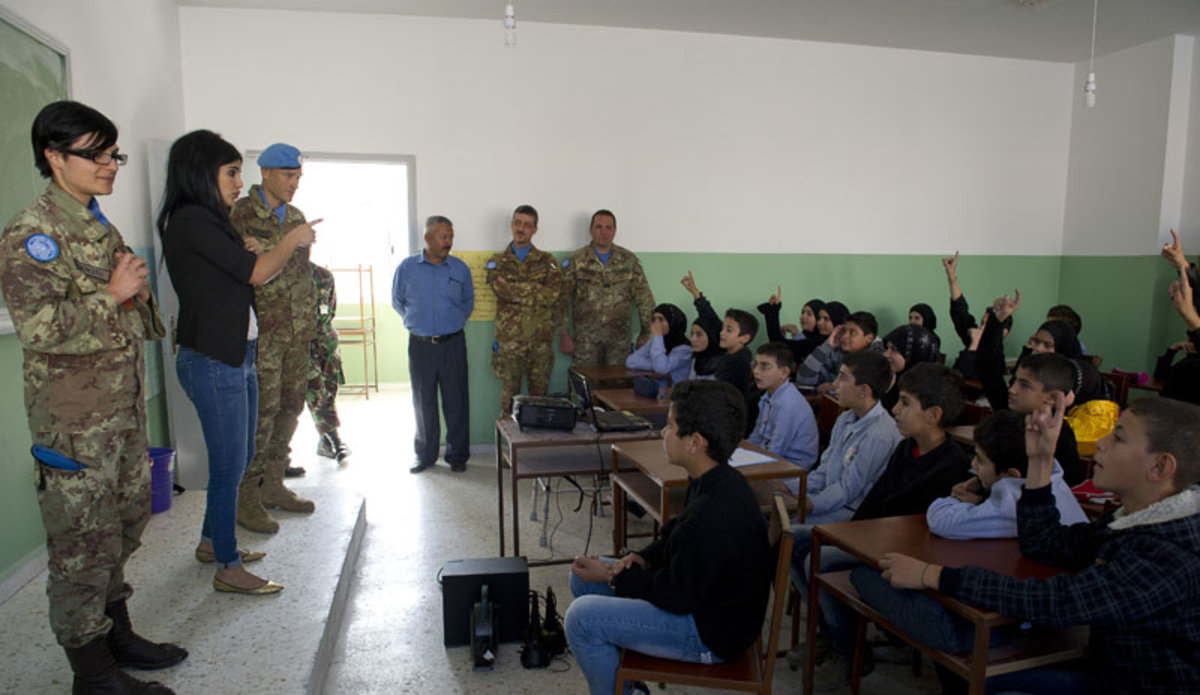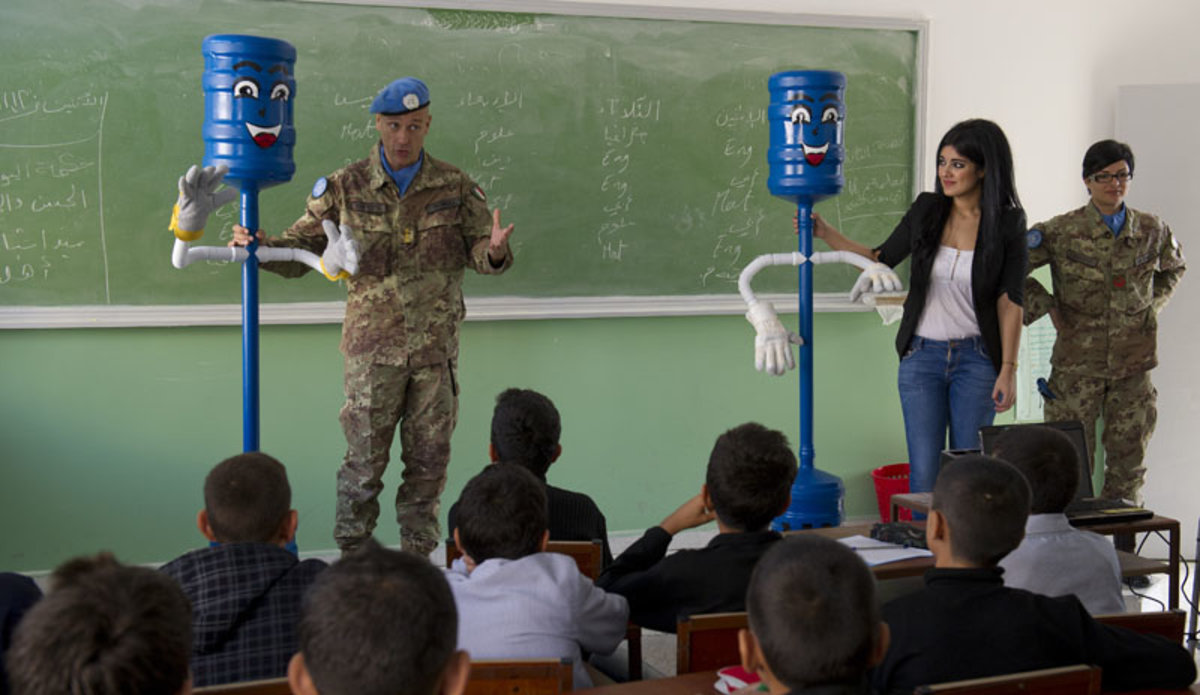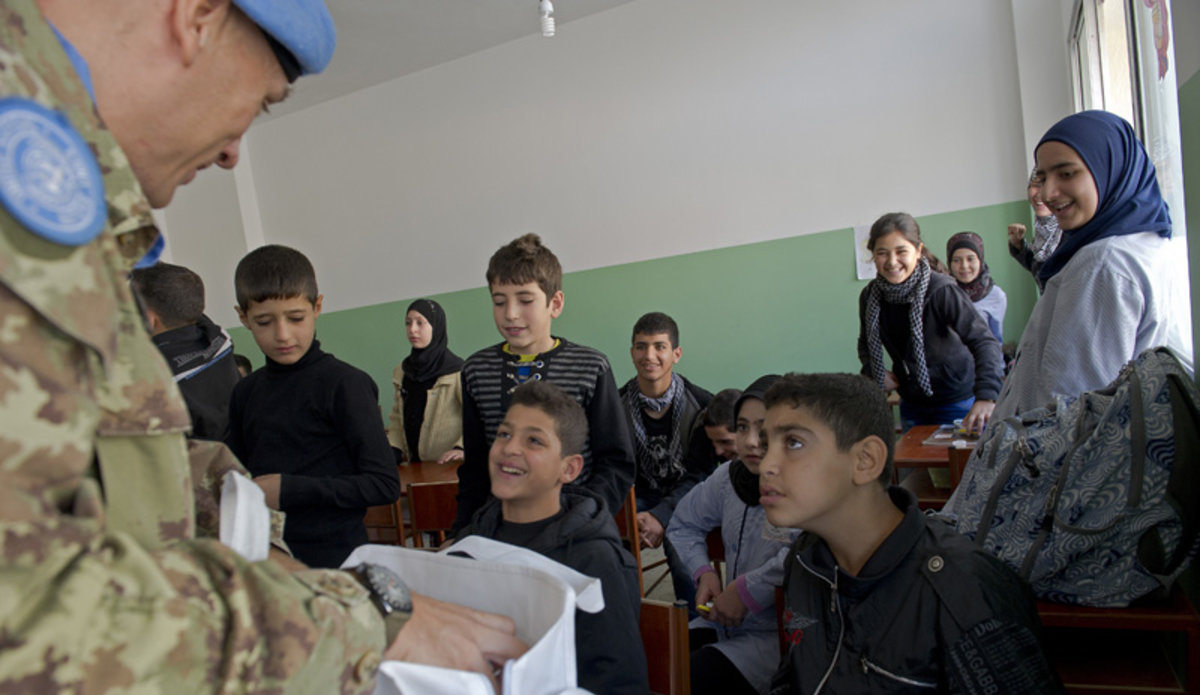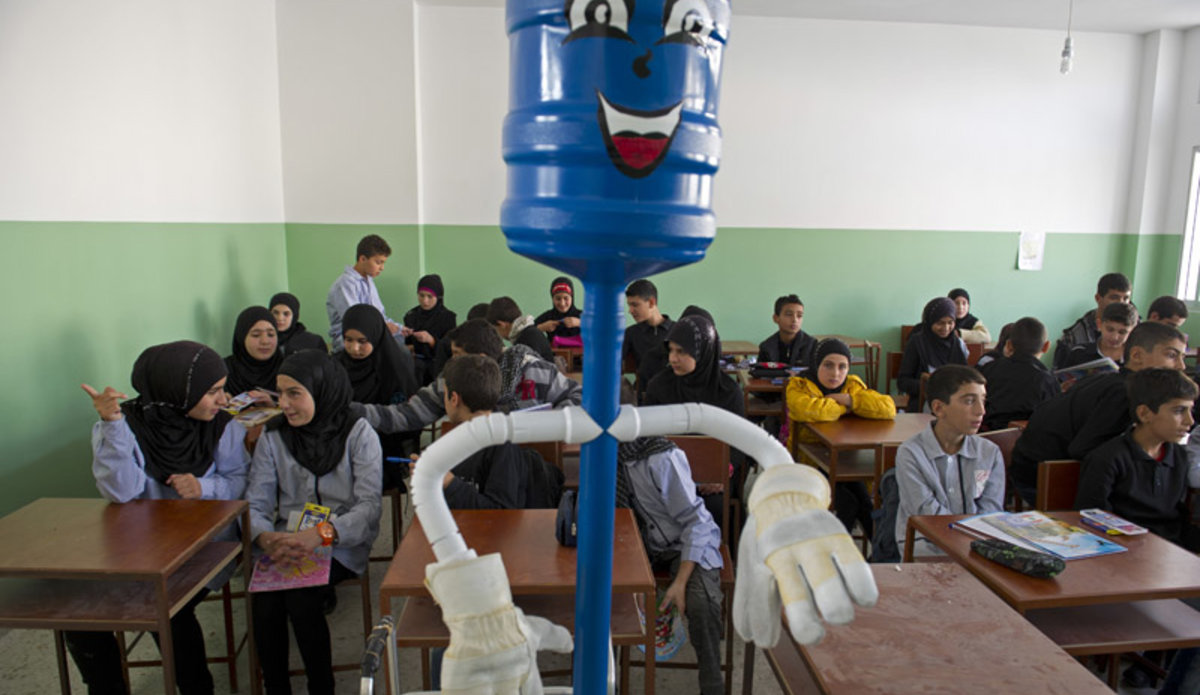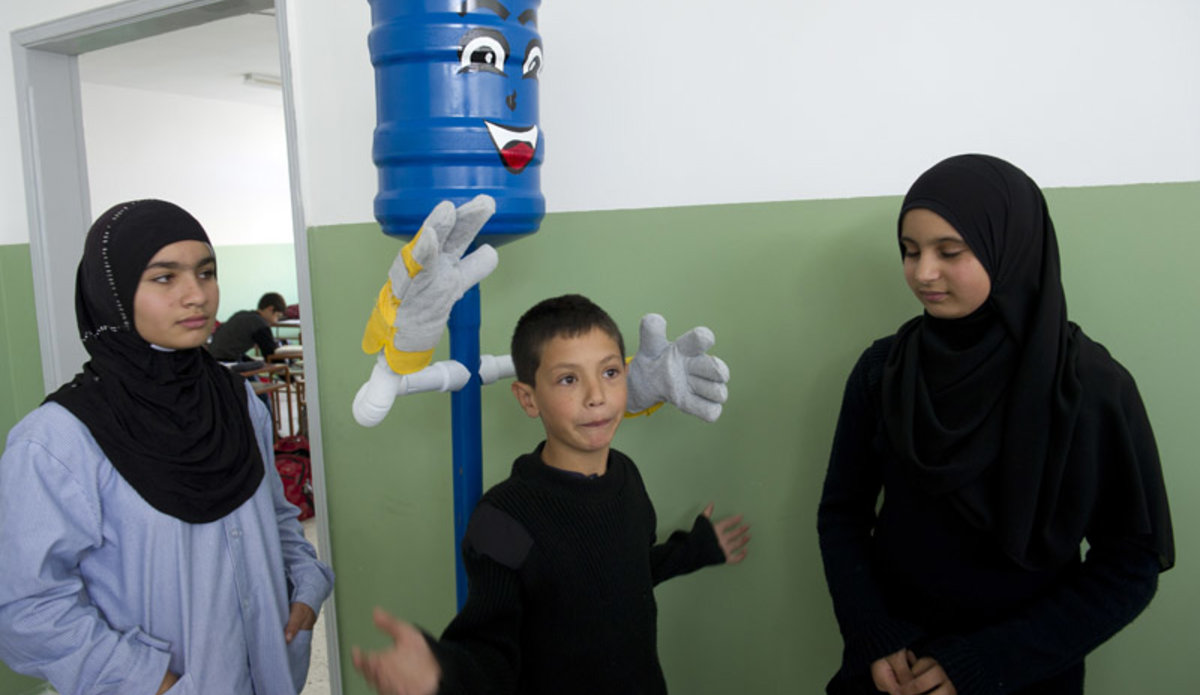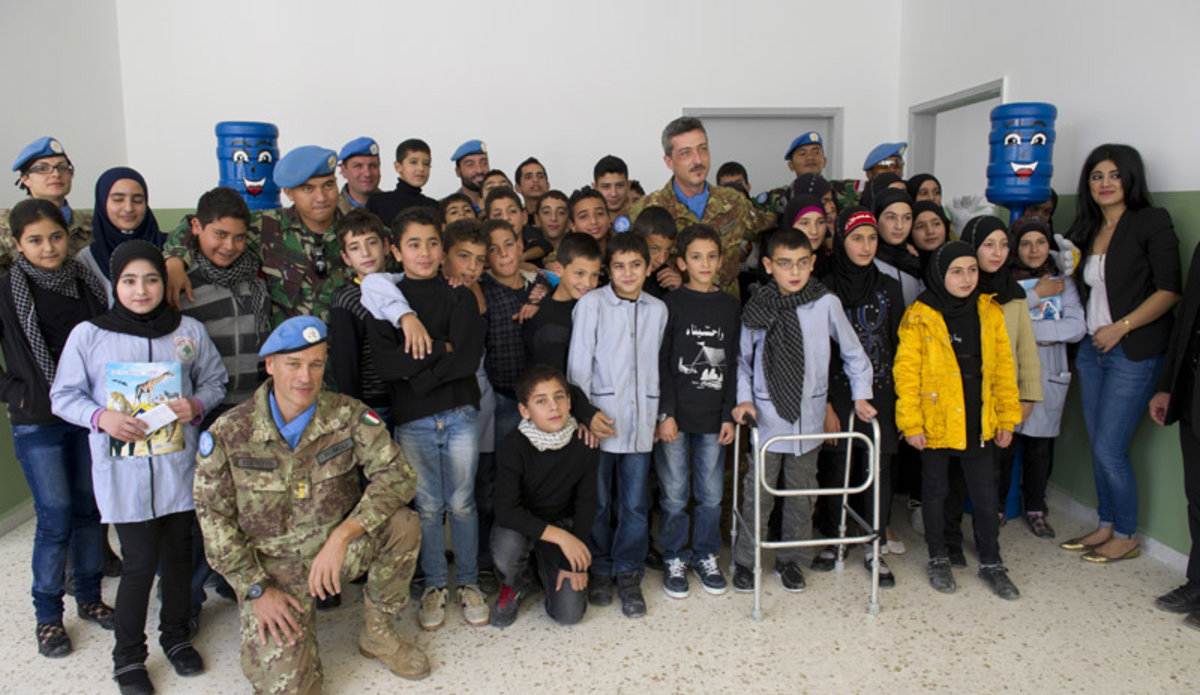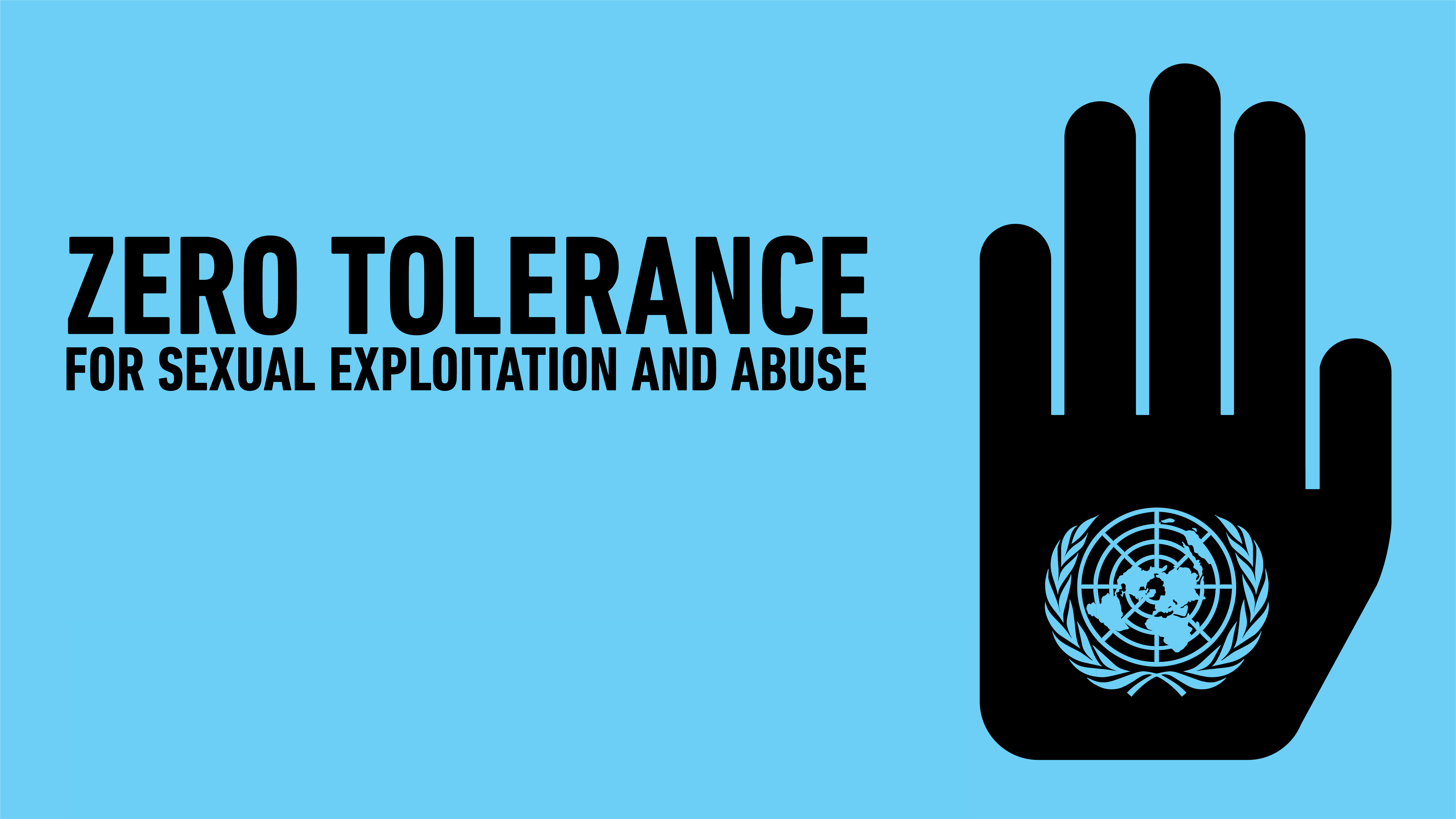Mr. Blue Barrel explains the Blue line
The line of withdrawal or the Blue line, as it is more commonly known, was established in the year 2000 to confirm the withdrawal of Israeli forces from Lebanon.
6 years have passed since UNIFIL, in cooperation with Lebanon and Israel, started to mark the line in order to provide clarity on the ground for both the local population and troops.
However, there remains a lot of confusion as to what the Blue Line is and what it is not. Much effort has been put into explaining the Blue Line through TV documentaries, radio episodes, magazine and web articles, but how would you explain this somewhat complex issue to ten year old school children so that it would grab their attention and be understandable at the same time?
To answer this challenge, UNIFIL's military community outreach unit (MCOU) came up with Mr. Blue Barrel. Created by MCOU's Capt Andrea Romoli, Mr. Blue Barrel is a human sized blue barrel, complete with two barrels, a center pole, but also sporting two arms, hands and a smiley face. Suddenly the lifeless, metallic Blue Line Barrels installed all along the Blue Line come to life in the shape of a smiling, interacting Mr. Blue Barrel.
So, Mr. Blue Barrel set out on one of his first assignments and visited the public school of Jibayl Al Butm. UNIFIL's MCOU team engaged in a couple of presentations to two grade six classes. First, the peacekeepers needed to get a feeling of the students' real knowledge regarding UNIFIL, its role and whether Lebanon had a border in the south or not.
And so the questions started. Do you know why UNIFIL is here? What is the role of the peacekeepers? What are their activities?
The students' answers were relatively good indicators that they were aware of what was going on around them. They seemed to know why UNIFIL was here even if it was in their own simple understanding of the issue.
And then came the question of the day "What is the Blue line?".
The students' answers ranged between "the borders we cannot cross" to "the area we shouldn't trespass because of mines" to "the liberation borders" and even some students answered "the dangerous zone."
To explain and clarify the real definition of the Blue line, along came Mr. Blue Barrel.
"We created this cartoonish example of the smiling Blue Barrel that has hands in order to simplify things for the kids" said Captain Andrea Romoli. The explanation was quiet simple "when two Blue Barrels are facing each other then the Blue Line is between them".
And so the Blue Line games began, with the peacekeepers making sure the lesson became interactive, inviting the kids to physically participate. Captain Romoli asked the children to each draw the Blue Line by connecting two Mr. Blue Barrels with a rope, so signifying the Blue Line.
Another set of questions were asked by the peacekeepers to make things even clearer. "How close can we get to the Blue Line?", "Should we cross the Blue line?", and "On which side of the Blue Line are we allowed to be?".
Most of the students' answers were surprisingly correct. It was evident that they understood what was being explained to them in addition to having fun and playing the Blue Line games.
The key messages that UNIFIL's MCOU team was trying to get across to the children were: 1. The Blue Line is not the border between Lebanon and Israel, because there is no official border at this time; 2. The technical fence that often runs parallel and close to the Blue Line is not the Blue Line or the border; and 3. No one, from either side is allowed to cross the Blue Line.
The school's supervisor Mr. Jamil Albandar noted the importance of such an event especially for the young students. "Now they know more about a very important issue and we thank UNIFIL for their initiative" he said.
Mr. Blue Barrel and his team are scheduled to visit many schools throughout the south to share the correct facts about the Blue Line with a smile and some fun.
--------------------------------------------------------------------------------
Article: Ghinwa El Deek
Photos: Pascual Gorriz Marcos
Video Editor: Suzane Badereddine
Video Camera Operator: Mohamad Hamze
Graphics: Zeina Ezzeddine
Webmaster: Dany Fouad Ghafary
--------------------------------------------------------------------------------
 UN
UN United Nations Peacekeeping
United Nations Peacekeeping
